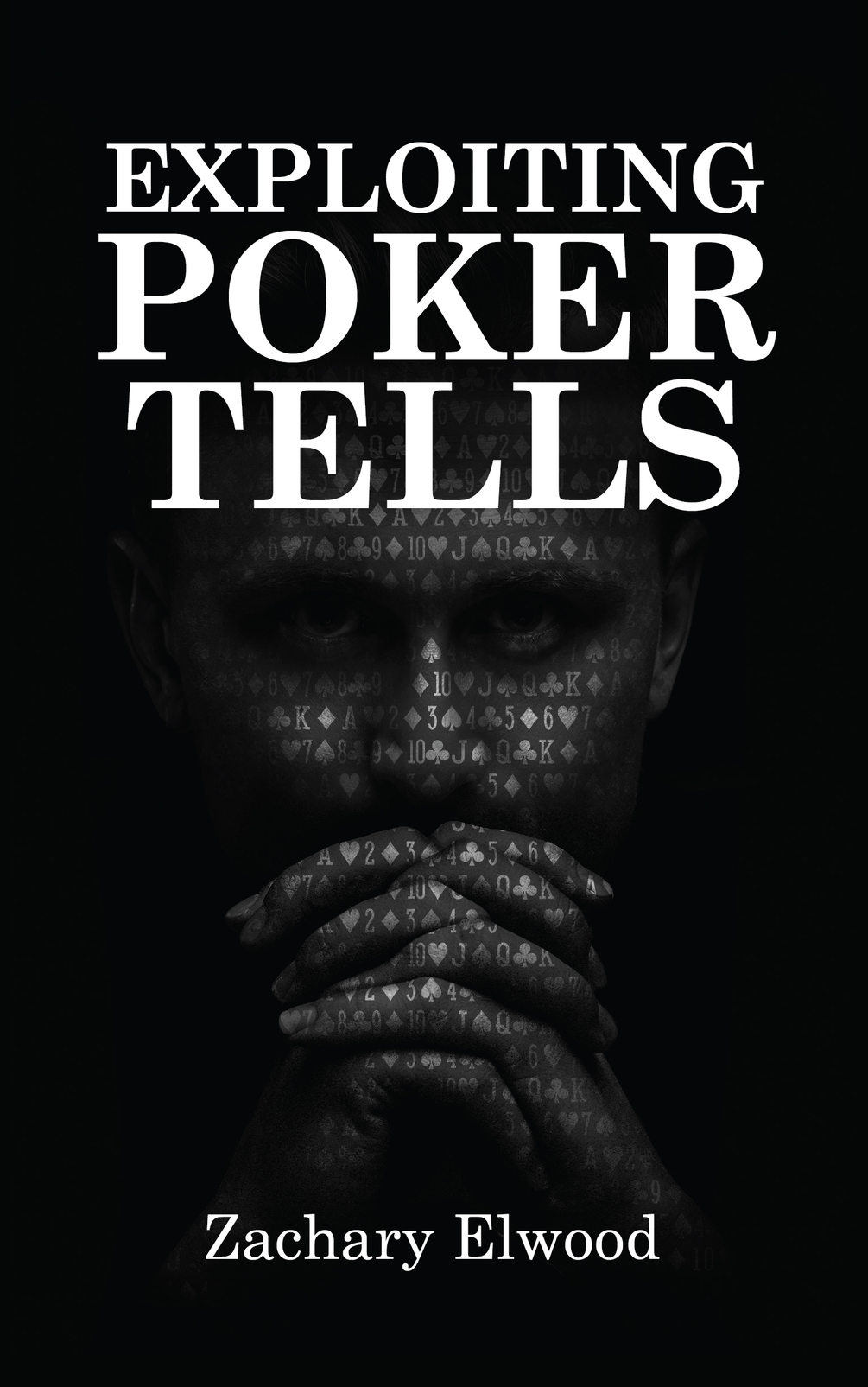With the WSOP barely a month away, I’m in full poker study mode. Re-reading Zach Ellwood‘s excellent Exploiting Poker Tells is right at the top of the priority list.
This is my third read-through, so the material itself isn’t novel to me. However, I still find reading it a useful reminder of just how much there is to pick up on and exploit, if you pay attention. For all of my work with Pio and whatnot, I still think that getting better at exploiting verbal and physical behavior is the area of study with the potential for the largest returns, especially at the WSOP where there are so many amateur players and everyone is so emotionally invested in the outcomes.
Here’s an interesting spot from a recent game where I got a lot of information from my opponent, though I remain uncertain whether I processed it correctly.
The game was 5/10 no-limit, and we were six-handed. The main Villain in this hand, as well as the BB, were both extremely loose, especially before the flop, and I’d been raising them a lot. Villain had expressed some annoyance with this, and while his play was mostly passive, he had attempted a few bluffs against me. Once I picked him off with a full house and once with Ace-high. That second call got some eye rolls and under-the-breath muttering, and he’d been a lot more passive since.
I straddled the button for $20. Villain limped UTG, and I raised to $100 with QTo. The BB and Villain called.
Flop ($305) Qc 8s 7h. Check to me, I bet $150, only Villain called.
Turn ($505) 5d. Villain checked, I bet $400, Villain shuffled chips for a while, then moved all in for $1400 total.
As I pondered the situation, he muttered, “I’m already there.”
On the one hand, a willingness to speak at all in a large pot indicates some strength. It’s a sign of relaxation. Bluffers are often tense and trying not to draw attention to themselves.
However, claiming to have a strong hand is a classic strong-means-weak tell. Overall, this statement made me more inclined to call.
I pressed him for more information, though. “Already where?” I asked. “That’s the question.”
“I got it, man. I’m made.”
“You got what?”
“I got you, man. You’re beat. I mean, you might get there on the river, but I got you right now.”
This was all feeding the strong-means-weak story. “I don’t have a draw,” I told him. “If I’m beat, I’m beat.”
He visibly relaxed when I said that. “Oh,” he said. “Then I don’t care what you do.” He sat back in his chair and crossed his arms.
I interpreted this as a truthful statement. It’s actually not that uncommon, in a large pot, for many players to try to get folds even when they’re ahead. The potential for getting drawn out on would explain his nervousness. A lot of his behavior was ambiguous; the strong-means-weak tell is well enough known that I wouldn’t be shocked to see it employed in reverse. But his relaxation when I told him I didn’t have a draw felt genuine. Of all of his behavior, that was the piece I felt most comfortable relying on.
For better or worse, I folded. It’s important to note that despite the pre-flop action, hands like AQ, KQ, 96 (definitely suited, maybe even offsuit), 75s, and perhaps even 85s are in his range for seeing the turn. My biggest concern was whether he’d shove the turn with something like 76, but that seemed unlikely given his worry about my having a draw.
He showed me a 5 after I folded. I don’t think 55 is impossible for him, even with the flop call, but I do think it’s unlikely. If I had to guess a single hand for him, I’d say 75s.
I’m not at all sure folding was correct here; I was getting pretty good odds. However, it’s the most interesting spot I’ve had in a while in terms of the physical and verbal behavior of an opponent, so I thought it would be interesting to share. How would you have interpreted this behavior?
PS If you decide to purchase Zach’s book, which I highly recommend, please use this affiliate link. You’ll find Exploiting Poker Tells there along with his other books (all excellent, in fact you’ll get more out of Exploiting if you read the others too) and his video course. As you might imagine, it can be quite helpful to see videos of players performing the various behaviors he describes!


Good fold, now that he showed a 5. What can he have that floats on that rainbow flop where one card is a 5? Q5 would not limp in the first place. That leaves 85, 75, 65, or 55.
When he relaxes after you say you aren’t on a draw, that’s too hard for most people to fake.
I would also be curious to hear Zachary’s interpretation of this verbal behavior. My intuition from the beginning was that he was technically telling the truth (“I’ve got it”), but with a weaker hand than he was implying because he genuinely wanted a fold. I was thinking a decent Q but with the new information, 2 small pair would also fit this description.
Did you consider this a clear bet on the turn? Was he likely to call with middle pairs? I think against an unknown opponent my default would be to check here, but maybe that’s bad.
I notice from Zach’s website that this is the third book in a series. Would you recommend all three or skip straight to this one?
Very good question, thanks for asking! I do think this is the best of them and has significant stand-alone value, but I think they are all good and you’ll get more out of this one if you’ve read the first two.